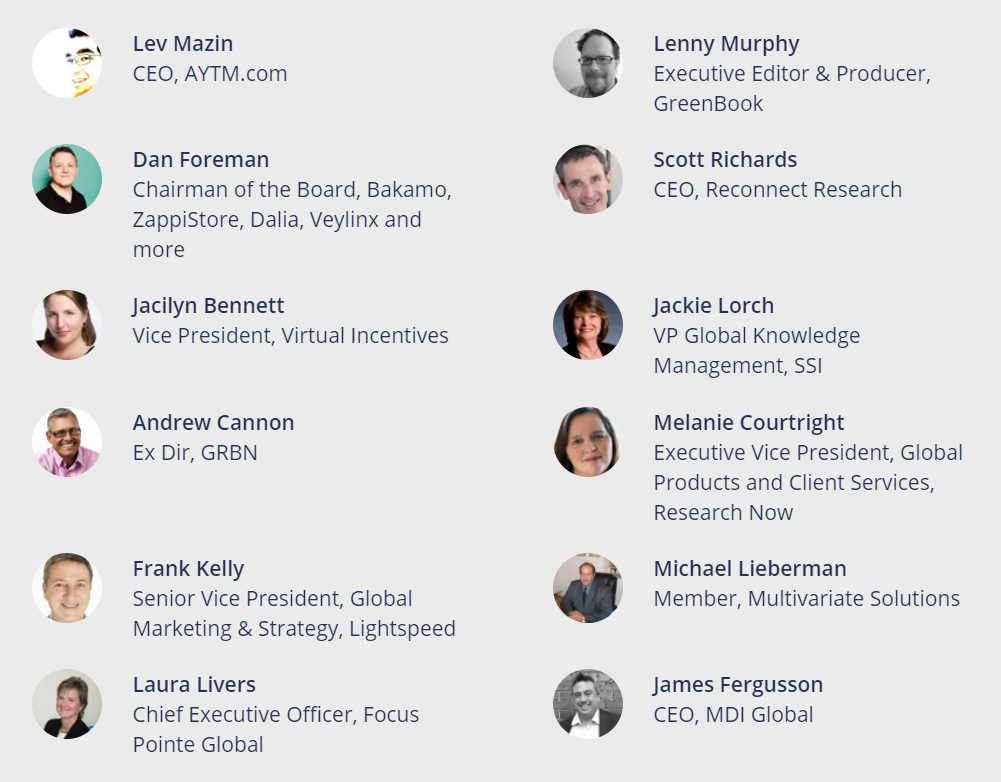At the recent IIeX Conference in Atlanta, I had the honor of standing in for Lenny Murphy and leading a distinguished panel of industry experts on a journey to explore the findings from the Consumer Participation in Research report and their implications.
A packed audience enjoyed a lively discussion and got the chance to interact with the panel. Here are the key insights I got out of the session: The panel agreed that researchers working on both the agency and client-side should be concerned with the key finding from the CPR study that only a quarter of participants are satisfied with their experience participating in research. The potential impact of decreasing rates of participation on data quality and the cost of quality data should be a definite concern.The panel urged the audience to put the participant first when designing research; by thinking of them as people and not just participants or respondents, and treating those people, who are willing to participate, like they would like to be treated themselves. Practical examples included; paying a fair incentive, writing questions “like a human”, designing surveys for mobile, and even asking your partner to test your survey on their mobile!”Think ParticipantS, Think People
Whilst the CPR report tells us that the financial incentive is very important, it is also clear that many people are also motivated out of a desire to influence things and have their opinion count. Armed with the knowledge that a bad survey experience has a negative impact on the brands in the survey / the category, and a great experience can have a positive one, the panel urged clients to consider research as a brand touchpoint and be more transparent about who the survey is for, how the survey data will be used and how it will benefit people as either customers or citizens. They also encouraged clients to share data back with participants.Add a “Thank You” note from the Client to the End of the Survey
There was a lot of discussion around survey design and how technology can be leveraged to give a better experience. From the discussion it is clear that both data collectors and technology companies have a wealth of experience in this area, but unfortunately, too often they only see the questionnaire once it has already been signed off on by both the client and the research agency. As a result, their hands are tied and they have to serve up a poorer experience than would have been necessary had they been involved in the research/questionnaire design process early on.Get your data collector / technology partner involved early in the research design process
This discussion led me to question whether clients should in fact give up questionnaire design altogether and leave it to their research agency / data collector / technology provider partners? I don’t think many of us would draw up the plans if we were to build a house… we would rely on the architect for that… so perhaps, clients should leave the final questionnaire design to the research experts? I’d be interested to hear some clients’ views on this idea?Would you draw the plans for your own house?
When asked whether clients should be penalized financially, so pay more, for surveys which give a participants a bad experience, and conversely, rewarded for giving an excellent one, the data collectors on the panel said that they found this difficult. The comments were that clients would vote with the wallets if they were charged more and would find a cheaper supplier. This discussion made we think about the issue of data quality and pricing, and the fact that clients do not have a straight-forward way to judge the price-quality ratio of different approaches, making price an easy “short-cut” as the behavioral economics experts would say. Perhaps this is something our industry needs to develop?it’s hard not to follow the money
It’s not just about online surveys









